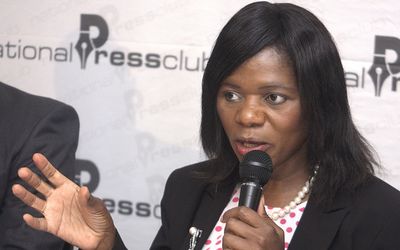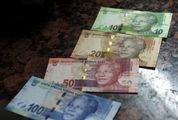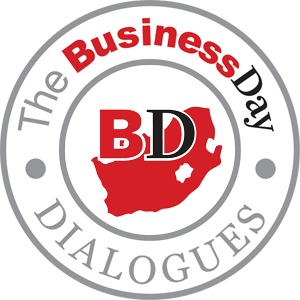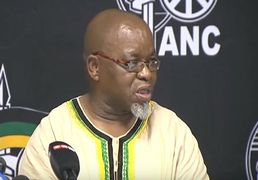Election may see unpredictable voter shifts — Barclays
by Staff Writer,
2014-05-07 15:05:18.0
THE final five weeks’ run up to Wednesday’s national elections may have shifted voter intentions in unpredictable directions, Barclays emerging markets research said in an article released around midday.
Although the article did not explain this statement, the run up to the election has been coloured by, among others, the release of Public Protector Thuli Madonsela’s report on the misuse of public money to upgrade President Jacob Zuma’s estate at Nkandla, KwaZulu-Natal and an extended strike in the country’s platinum belt.
Barclays said Ipsos polls "clearly" suggested the African National Congress (ANC) would retain its 20-year rule over South Africa, and that it was likely to retain control of eight of the nine provinces. The ANC lost control of the Western Cape, the country’s second-wealthiest province after Gauteng, to the Democratic Alliance (DA) in 2009.
"Given the higher margin of error (in the poll) due to the smaller sample sizes in the provinces, surprise outcomes are more likely at provincial level.
The DA has set its sights on winning control over a second province, although DA leader Helen Zille said on Wednesday morning after voting: "We will see at the end of the day. I don’t like to speculate. Our goal in this election is to do better than in the last one."
In 2009, the DA won 16.7% of the total vote, growing — by its calculations — 34.7% from its 2004 12.4% of the total vote.
Much of Wednesday’s polling was calm and steady, despite serious problems in some areas, such as Bekkersdal on the West Rand and Gugulethu on the East Rand. In both areas buildings were torched on Tuesday in protests apparently linked to the elections.
Ipsos predicted the ANC would win 63.4% of the vote in Wednesday’s elections, the fifth since South Africa gained democracy in 1994.
The polling agency posited that the DA would come second with 22.9%, newcomer the Economic Freedom Fighters next with 4.7%, and the Congress of the People, the Inkatha Freedon Party, the United Democratic Movement each with about 1%. "Other parties" would secure 3.9% of the vote.
The Ipsos survey was based on 3,730 face-to-face interviews with randomly selected people, conducted between February 20 and March 28.
"Ipsos’s survey responses indicate that a high voter turnout would benefit opposition parties and hobble the ANC (although not enough to change the outcome)," Barclays said.
South Africa has 25.3-million registered voters, and about 31-million people eligible to vote, given their age.
Barclays said a detailed comparison of main parties’ election manifestos in terms of economic policy showed they were "largely silent on matters of fiscal and monetary policy", which made it difficult to judge their economic principles.
"They also contain much puffery, designed to appeal to the undecided (and often less informed) voter, but with little real chance of being implemented," Barclays said.
"This is because manifestos rarely acknowledge the most fundamental constraints in politics: that needs and desires always exceed the resources available to meet them; that everything has a cost (whether financial or in terms of a lost opportunity); that there are few easy Pareto improvements (an action done in an economy that harms no one and helps at least one person) on a macro scale available to governments; that most policies have a raft of unintended (and usually negative) consequences; that a government’s institutional capacity is less than perfect; and that some good goals have no means of achievement".
* This article was amended on May 8 2014 to clear up the misconception in the headline.

Public Protector Thuli Madonsela. Picture: PUXLEY MAKGATHO
THE final five weeks’ run up to Wednesday’s national elections may have shifted voter intentions in unpredictable directions, Barclays emerging markets research said in an article released around midday.
Although the article did not explain this statement, the run up to the election has been coloured by, among others, the release of Public Protector Thuli Madonsela’s report on the misuse of public money to upgrade President Jacob Zuma’s estate at Nkandla, KwaZulu-Natal and an extended strike in the country’s platinum belt.
Barclays said Ipsos polls "clearly" suggested the African National Congress (ANC) would retain its 20-year rule over South Africa, and that it was likely to retain control of eight of the nine provinces. The ANC lost control of the Western Cape, the country’s second-wealthiest province after Gauteng, to the Democratic Alliance (DA) in 2009.
"Given the higher margin of error (in the poll) due to the smaller sample sizes in the provinces, surprise outcomes are more likely at provincial level.
The DA has set its sights on winning control over a second province, although DA leader Helen Zille said on Wednesday morning after voting: "We will see at the end of the day. I don’t like to speculate. Our goal in this election is to do better than in the last one."
In 2009, the DA won 16.7% of the total vote, growing — by its calculations — 34.7% from its 2004 12.4% of the total vote.
Much of Wednesday’s polling was calm and steady, despite serious problems in some areas, such as Bekkersdal on the West Rand and Gugulethu on the East Rand. In both areas buildings were torched on Tuesday in protests apparently linked to the elections.
Ipsos predicted the ANC would win 63.4% of the vote in Wednesday’s elections, the fifth since South Africa gained democracy in 1994.
The polling agency posited that the DA would come second with 22.9%, newcomer the Economic Freedom Fighters next with 4.7%, and the Congress of the People, the Inkatha Freedon Party, the United Democratic Movement each with about 1%. "Other parties" would secure 3.9% of the vote.
The Ipsos survey was based on 3,730 face-to-face interviews with randomly selected people, conducted between February 20 and March 28.
"Ipsos’s survey responses indicate that a high voter turnout would benefit opposition parties and hobble the ANC (although not enough to change the outcome)," Barclays said.
South Africa has 25.3-million registered voters, and about 31-million people eligible to vote, given their age.
Barclays said a detailed comparison of main parties’ election manifestos in terms of economic policy showed they were "largely silent on matters of fiscal and monetary policy", which made it difficult to judge their economic principles.
"They also contain much puffery, designed to appeal to the undecided (and often less informed) voter, but with little real chance of being implemented," Barclays said.
"This is because manifestos rarely acknowledge the most fundamental constraints in politics: that needs and desires always exceed the resources available to meet them; that everything has a cost (whether financial or in terms of a lost opportunity); that there are few easy Pareto improvements (an action done in an economy that harms no one and helps at least one person) on a macro scale available to governments; that most policies have a raft of unintended (and usually negative) consequences; that a government’s institutional capacity is less than perfect; and that some good goals have no means of achievement".
* This article was amended on May 8 2014 to clear up the misconception in the headline.













 News, views and analysis of South Africa's national and provincial elections on May 7 2014
News, views and analysis of South Africa's national and provincial elections on May 7 2014













Change: -0.47%
Change: -0.57%
Change: -1.76%
Change: -0.34%
Change: 0.02%
Data supplied by Profile Data
Change: -1.23%
Change: -0.37%
Change: -0.47%
Change: 0.00%
Change: -0.42%
Data supplied by Profile Data
Change: 1.39%
Change: 1.50%
Change: 1.24%
Change: 1.18%
Change: 1.17%
Data supplied by Profile Data
Change: 0.09%
Change: -0.63%
Change: 0.13%
Change: -1.38%
Change: -1.73%
Data supplied by Profile Data